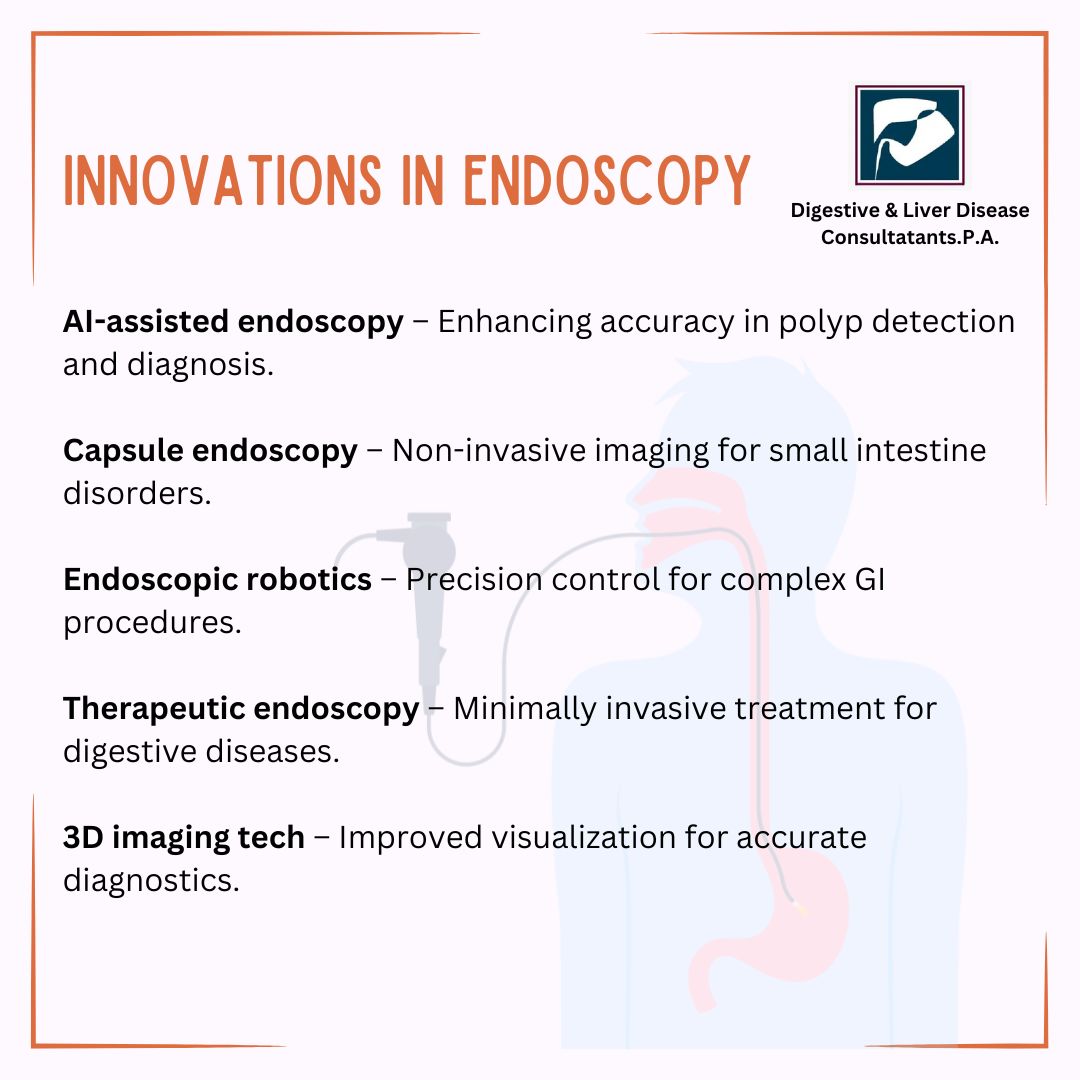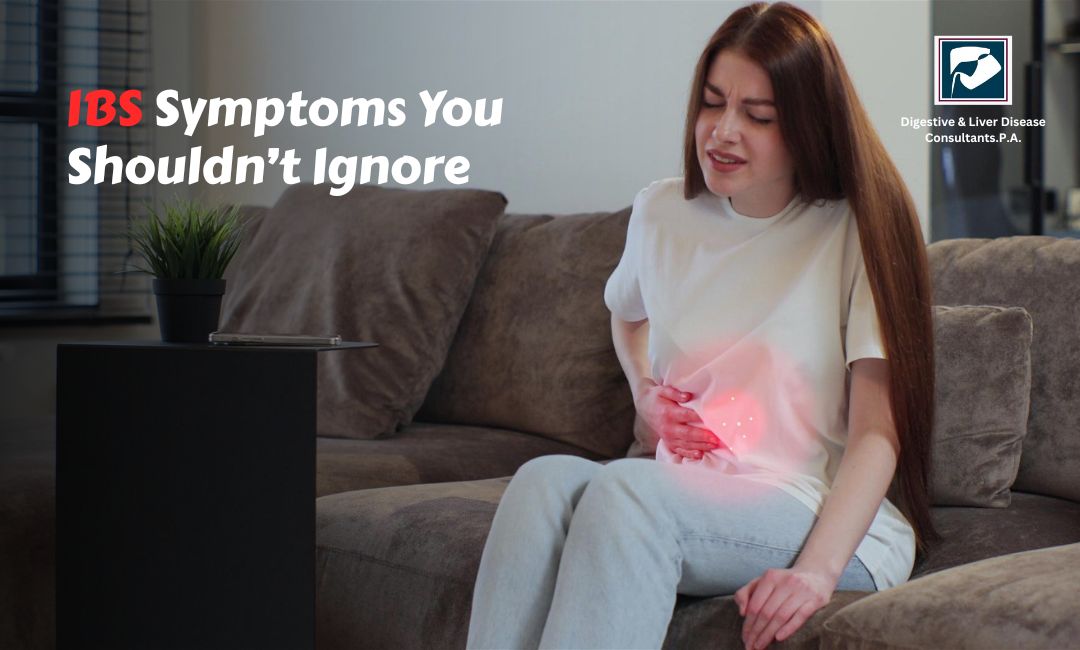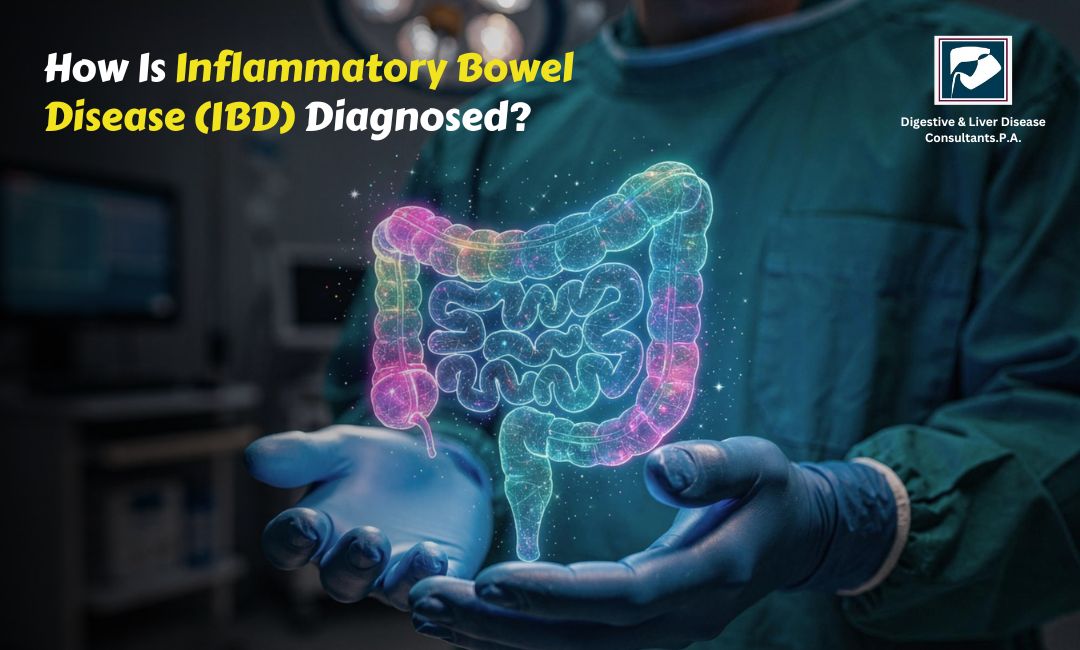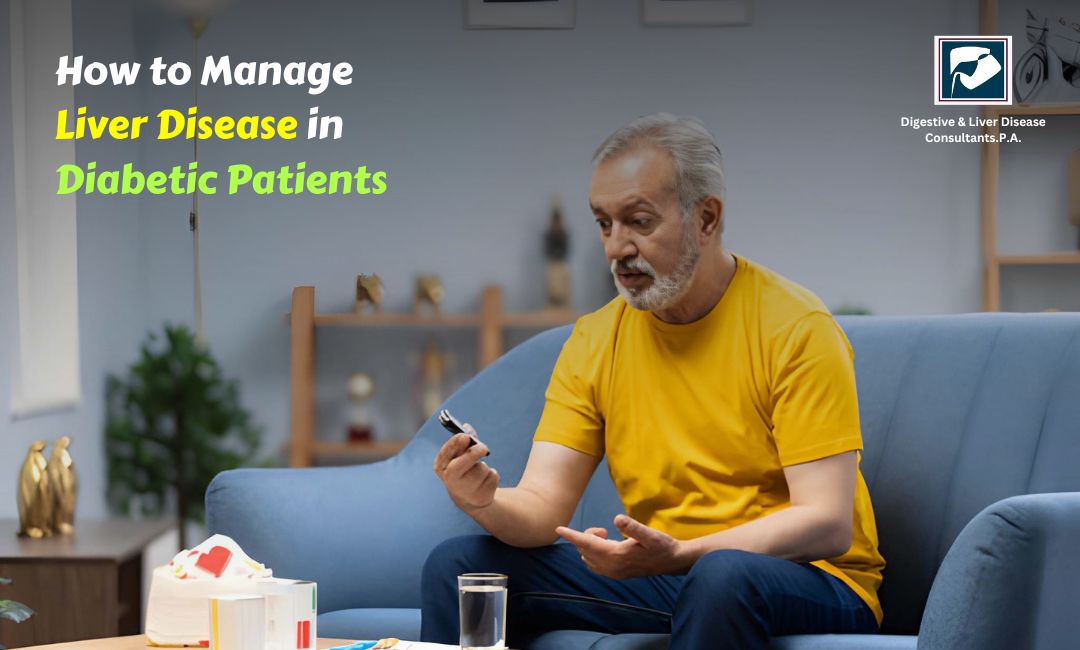Endoscopy is a powerful tool in modern medicine that has revolutionized the way we diagnose and treat digestive health conditions. Over the years, advancements in endoscopic procedures have significantly improved the accuracy and effectiveness of diagnosis and treatment, allowing for less invasive options and faster recovery times. At Digestive & Liver Disease Consultants, P.A., we stay at the forefront of these advancements to provide our patients with the best care possible. In this blog, we will explore some of the latest advancements in endoscopy and how they benefit patients dealing with digestive and liver conditions.
What is Endoscopy?
Endoscopy refers to a medical procedure that involves the use of an endoscope—a flexible tube with a light and camera on the end—to view the inside of the body. It is commonly used to examine the digestive tract, including the esophagus, stomach, small intestine, colon, and liver. Endoscopy is essential for diagnosing various gastrointestinal (GI) conditions such as ulcers, inflammation, tumours, and other abnormalities.

Recent Advancements in Endoscopic Technology
The field of endoscopy has seen tremendous progress in recent years, with cutting-edge technologies enhancing both the diagnostic and therapeutic capabilities of these procedures. Some of the notable advancements include:
High-Definition Endoscopy
High-definition (HD) endoscopy provides a clearer, more detailed image of the digestive system, helping doctors detect abnormalities with greater precision. This is particularly helpful for identifying early-stage conditions, such as small polyps or early signs of cancer, which may be difficult to spot with traditional methods. HD endoscopy also improves the effectiveness of biopsies, allowing for better-targeted tissue samples.
Capsule Endoscopy
Capsule endoscopy is a non-invasive procedure that involves swallowing a small capsule equipped with a camera. The capsule travels through the digestive system, capturing images of the small intestine, which is otherwise difficult to reach with traditional endoscopes. This technology is invaluable for diagnosing conditions like Crohn's disease, unexplained GI bleeding, and other disorders of the small intestine. Capsule endoscopy is particularly beneficial for patients who need a less invasive option than traditional endoscopy.
Endoscopic Ultrasound (EUS)
Endoscopic ultrasound combines endoscopy with ultrasound technology to obtain detailed images of the digestive organs, such as the pancreas, liver, and bile ducts. This procedure allows for better visualization of tumours, cysts, and other abnormalities, and it is particularly useful for evaluating digestive cancers and determining the stage of a disease. EUS is also used for performing fine-needle aspiration (FNA) biopsies, enabling doctors to obtain tissue samples from hard-to-reach areas.
Advanced Therapeutic Endoscopy
In addition to diagnostic procedures, endoscopy has evolved to include various therapeutic techniques. These procedures allow doctors to treat conditions directly during the endoscopy, eliminating the need for separate surgeries. Some of these advancements include:
Endoscopic mucosal resection (EMR): This technique involves removing precancerous lesions or early-stage cancer from the digestive tract.
Endoscopic submucosal dissection (ESD): A more advanced technique used to remove larger or deeper lesions, often for early-stage cancers.
Endoscopic retrograde cholangiopancreatography (ERCP): This procedure is used to diagnose and treat issues with the bile ducts, such as gallstones, blockages, or strictures. ERCP can also be used for placing stents or removing bile duct stones.
Robot-Assisted Endoscopy
Robotic technology has taken endoscopy to the next level by enhancing the precision and flexibility of procedures. Robot-assisted endoscopy allows for more precise navigation and control during complex procedures, reducing the risk of complications and improving patient outcomes. Surgeons can manipulate the robotic instruments with greater accuracy, and the minimally invasive nature of robot-assisted procedures promotes faster recovery times.
Artificial Intelligence (AI) in Endoscopy
The integration of artificial intelligence (AI) into endoscopy is an exciting development that has the potential to change the way doctors interpret images and videos during procedures. AI algorithms can assist in detecting abnormalities, such as polyps or tumours, and even predict the likelihood of disease progressing. This technology is still in its early stages but shows great promise in improving the accuracy of diagnoses and treatment plans.
Benefits of Advanced Endoscopic Procedures
The advancements in endoscopic procedures have led to several benefits for patients, including:
Minimally Invasive: Many modern endoscopic procedures are minimally invasive, meaning they require only small incisions or no incisions at all. This reduces the risk of infection, scarring, and other complications compared to traditional surgery.
Faster Recovery: Because endoscopic procedures are less invasive, patients generally experience shorter recovery times, allowing them to return to normal activities more quickly.
Reduced Pain: The minimally invasive nature of these procedures often leads to less post-procedure pain, making the recovery process more comfortable.
Improved Diagnosis: With the ability to capture clearer, more detailed images and perform biopsies during the procedure, doctors can diagnose conditions more accurately and at an earlier stage.
Increased Treatment Options: Many endoscopic techniques allow for direct treatment of certain conditions, such as removing polyps or treating GI bleeding, without the need for more invasive surgeries.
Digestive & Liver Disease Consultants, P.A.
At Digestive & Liver Disease Consultants, P.A., we specialize in providing advanced, comprehensive care for patients with digestive and liver disorders. Our team of skilled gastroenterologists and hepatologists utilizes the latest technology and procedures to diagnose and treat a wide range of conditions, including chronic liver disease, irritable bowel syndrome, inflammatory bowel disease, and colorectal cancer. We are committed to delivering personalized care and ensuring that our patients receive the highest level of treatment available.
If you suffer from digestive issues, unexplained abdominal pain, or other related symptoms, our team is here to help. We offer state-of-the-art diagnostic tools, including advanced endoscopy, to provide you with the best possible care and outcomes.
Conclusion
Advances in endoscopic procedures have transformed the landscape of digestive health care, providing patients with more effective, less invasive treatment options. From high-definition imaging to robotic-assisted procedures, these innovations enable doctors to diagnose and treat digestive disorders with greater accuracy and efficiency.
At Digestive & Liver Disease Consultants, P.A., we remain committed to utilizing the latest advancements to help you achieve optimal digestive and liver health.






